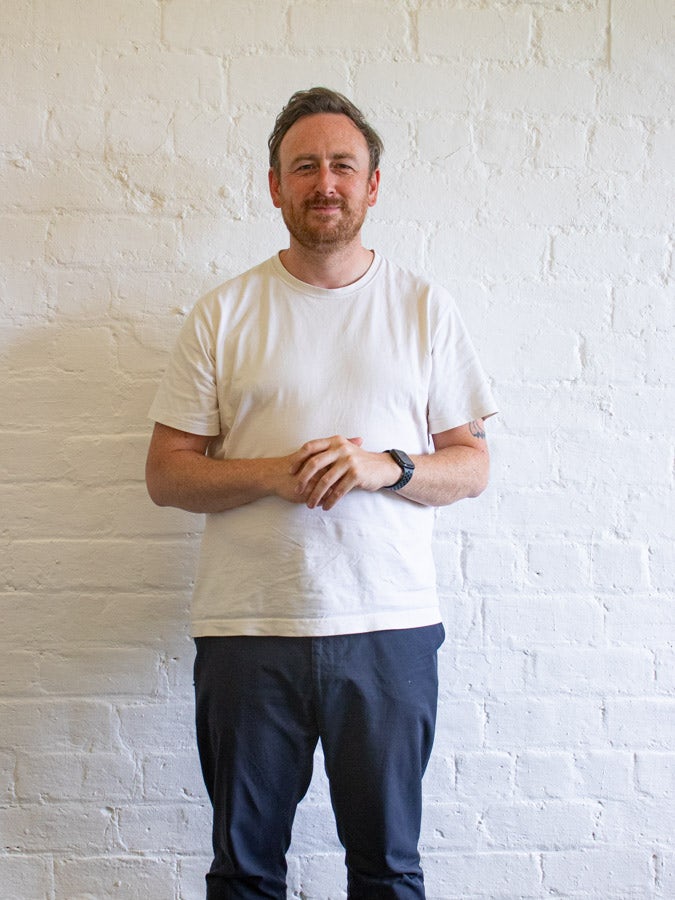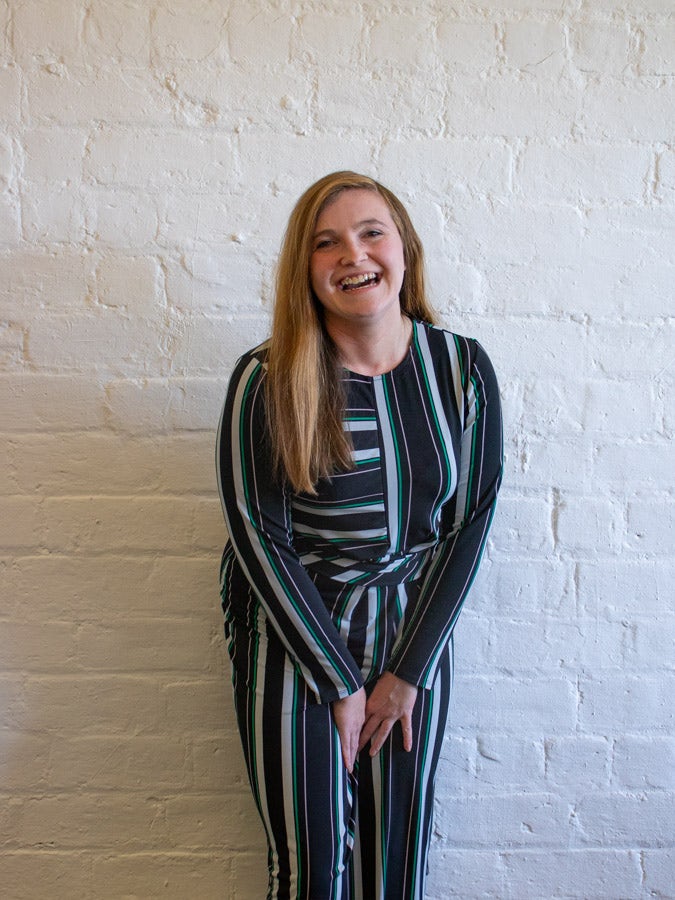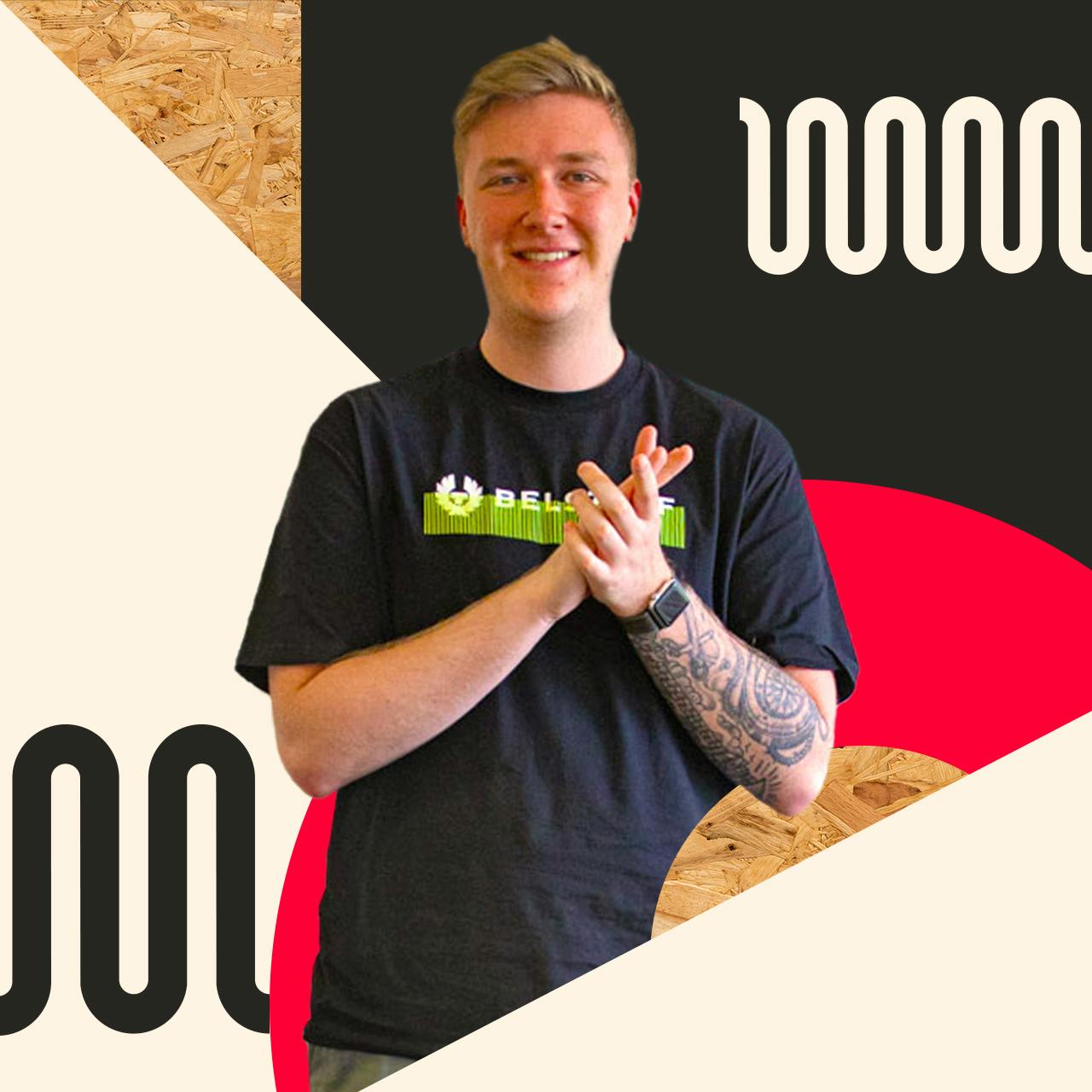Due to the number of fervent film fans and cinema goers in the office, we thought Glasgow Film was the perfect fit for the next instalment of our 'Rad Stories' series , where we speak to companies and organisations we're passionate about to discover what makes them tick.
We reached out to the Glasgow Film team and sat down with Margaret Smith (Marketing and Press Co-ordinator), Gavin Crosby (Design and Digital Co-ordinator) and Sean Greenhorn (Programme Manager) in a two-part interview to learn more about the evolution of Glasgow Film, the Glasgow Film Festival, the Glasgow Film Theatre experience and how they position the brand.
Part one focuses on how GFT not only endures but thrives in such a competitive space; their selection process, the Glasgow Film Festival and what the future may hold. The passion they have for their jobs and film in general really shone through, as they offered excellent behind the scenes insights into the day to day challenges of working for such an iconic institution.
So sit back, relax, grab your popcorn and enjoy part one of our long read on the evolution of Glasgow Film!
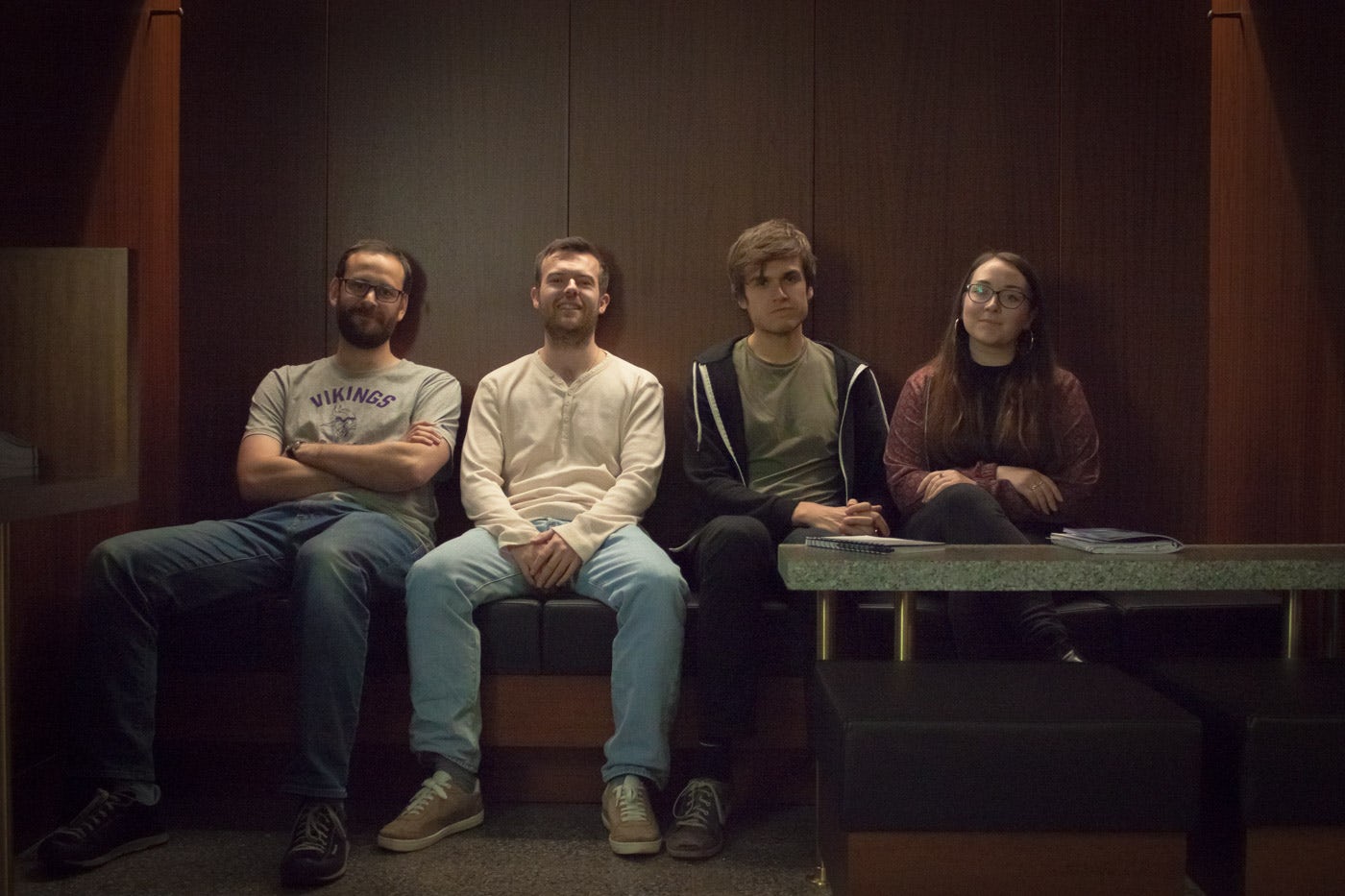
Can you tell us about your day to day responsibilities?
Margaret: I'm the Marketing and Press Co-ordinator. I look after our social channels, as well as our digital communications. We send a range of email newsletters that focus on the GFT, film festivals, the industry in general, and more. We've begun doing more targeted activity too. For example, we've started a CineMasters list for a monthly programme we're bringing in, whereby we send a newsletter that includes upcoming films for the season to recipients who are interested in the associated directors. I'm also involved in updating the website.
In addition, when we have the brochure coming up – there is a lot of copy! A lot of collecting, collating, writing, proofing…glamorous copy writing stuff! The lead time varies but it can be quite last minute!
Gavin: There is a lot of work that goes in to that! You have to research the film itself, the director, maybe the actors in it and how it came about. That all takes time and you have to write the copy in a way that makes sense to people; to ensure it's concise and correct, and makes people want to see the film. It can be a tricky process. We publish nine issues a year. It's mostly monthly except for three months which are double issues and sometimes the programming team don't know set release dates until quite late on. Then you have to book that film, agree terms and schedule it all, which is quite a laborious process. For them to lock it all down and for us to do the stuff we need to do – we generally have two to three weeks.
My job title is Design and Digital Co-ordinator, so that's basically managing the website, creating print and coming up with identities for whichever projects we're working on. It varies quite a lot. It can be a big film season and I’m doing something for that (the creative or whatever), or we all work as a team and pitch in for festival creative. That's quite a long process. It varies in scale.
I've also started cutting together trailers for seasons – especially for material that hasn't been out for a few years. For example, I was working on a Sofia Coppola season, including the trailer, and that in turn helped to promote her new film ('The Beguiled'). Additionally, I was involved in setting up screens in the bar due to renovation. It seems an obvious thing to do but we've only started doing it recently. I create the brochures too, which as I mentioned is quite a big job every month!
Sean: I'm the Programme Manager and along with Allison Gardner (Programme Director) we're responsible for the day to day programme and selection process at GFT; although we work closely with the wider team and see it very much as a collaborative process.
When you're writing copy to promote upcoming films, do you have to run it past anyone involved in the production of the film?
Gavin: Usually not. Distribution companies go to lots of cinemas and venues. I don't think they have the time to check everything that's written. For smaller titles, sometimes they do want to okay it and that's fine. For bigger titles it doesn't tend to happen.
Margaret: There's genuinely a mutual trust that we both want the best for the film and we're going to write the right thing.
What's the lead time for booking a film?
Gavin: It depends. It can be a few weeks to a couple of months. Sometimes they change the dates and you've already gone to print and you can't do anything about it. It doesn't happen that often but it does happen. It actually happened with 'The Square' - the Palm d'Or winning film, which was supposed to be released at the end of August but the director is still editing it and it has been delayed until 2018. It was in the brochure!
Margaret: People were talking about it and it was on the cover!
It just builds the hype!
Gavin: We'd like to think so! Maybe people will forget or something!
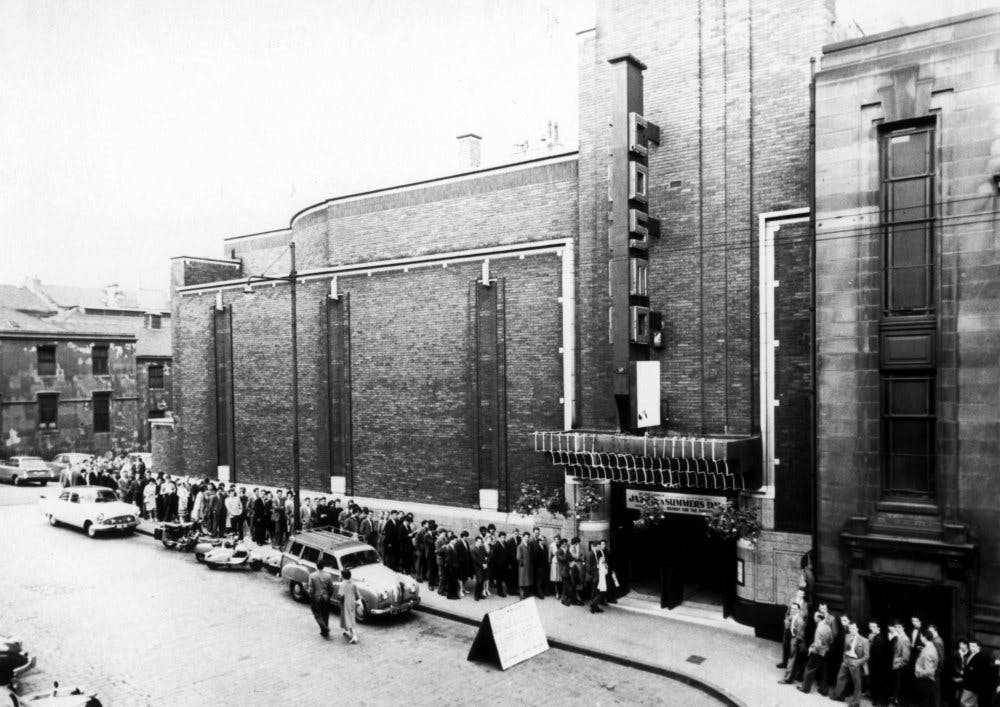
Why do you think GFT has managed to endure for so long when other cinemas have fallen by the wayside, including a few big hitters in Glasgow?
Margaret: People feel like it's theirs. It's not just somewhere you go. People feel emotionally attached to GFT. It has been there a long time – it's iconic.
It’s not just a place you go for a day out. People feel ownership over the place.
Gavin: I think that's it. People love coming here and want to see it succeed. That helps us maintain ourselves. We've also tried to stick to what we believe in terms of programming. It's not just about showing whatever's on – it's about offering choice. As long as you do that I think people will appreciate it and keep coming back.
How do you stay true to your beliefs and your brand while remaining competitive in such a competitive space? What kind of challenges have you faced?
Gavin: There are always challenges. There is a Cineworld down the road, an Odeon at the Quay and a Grosvenor in the West End. It's always tough. We've stayed true to our values. Our audience knows they can trust us when it comes to films. Even if the audience hasn't heard of a film – they will think there is some value to it if it’s showing at the GFT. We differentiate ourselves by the atmosphere at the place. It has a soul and I think you might lose that in some multiplexes.
I think anyone that goes to the cinema is a potential customer. We're all fighting over the same people. There's only so much money to spend going out and it's actually a bigger marketplace than just cinema goers – it's people going to gigs or any kind of entertainment event. It's that sort of sphere. It's extremely competitive and now with the likes of Netflix and people staying in their homes to watch film as a much cheaper alternative, we have to make sure people know coming to the cinema is a different experience. Seeing something on a massive screen with a lot of people is something worth coming to.
It's something we always come back to in meetings and discussions – you have to tell the story of GFT in order for people to understand why it's a good place to come.
Margaret: When we show things like 'Lost in translation' that loads of people have seen before but they love and we’re showing it on 35mm - you're not getting that on Netflix! Plus, you're watching it in a room full of people who probably also love this film. It's a completely different experience. Although Netflix, Amazon Prime etc do prove massive competition – it's about selling the experience and not just the film.
If people don't know GFT or haven't been, they may think it's not for them - that it's a bit arthouse or not their kind of cinema. It's trying to convey that's not the case – that it's for everyone.
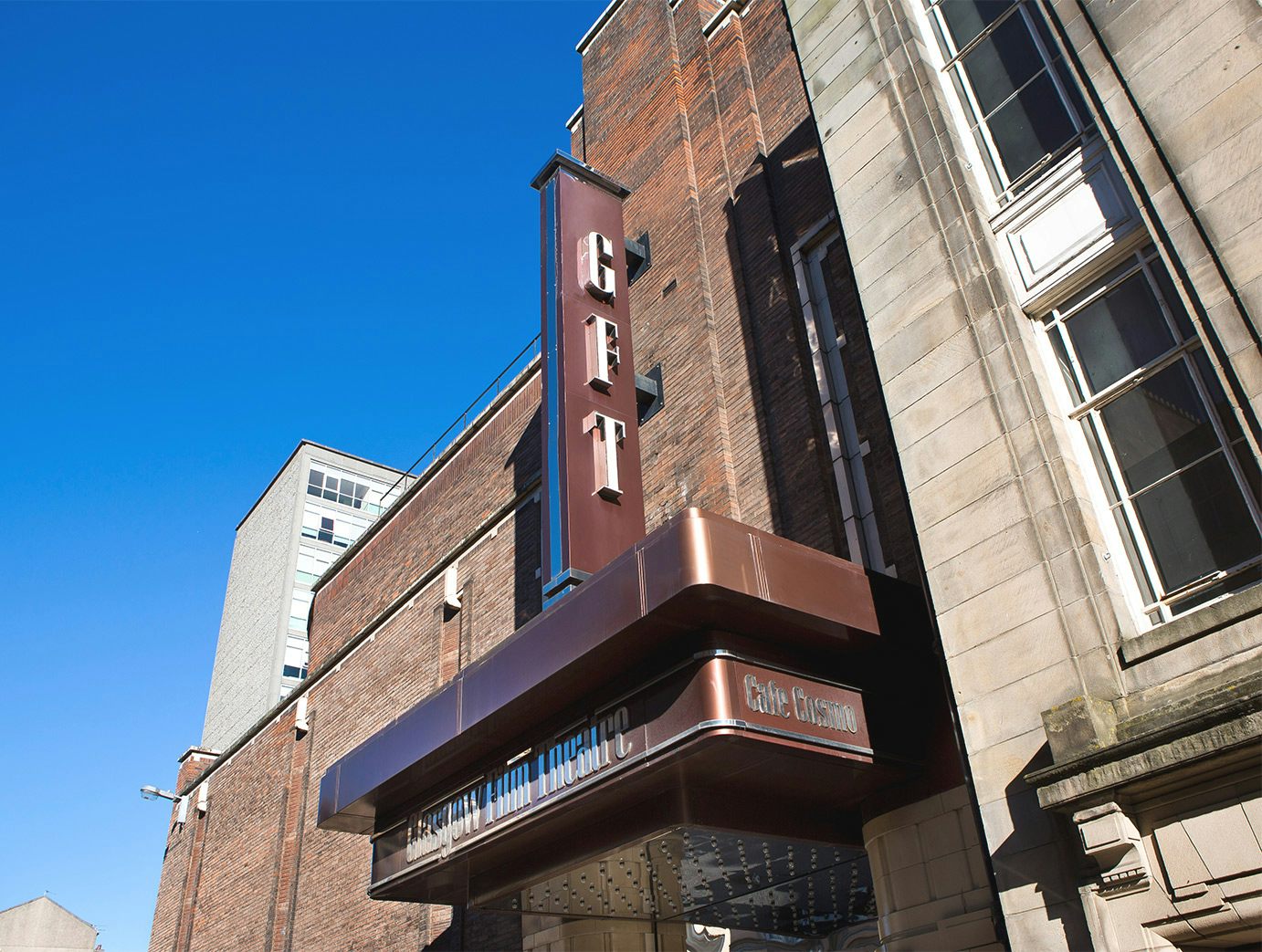
You have such a diverse film offering, including a full calendar of curated sessions, so what's the selection process like? How much is supplier or audience driven?
Gavin: It's a mixture of the two. Standard releases are just that. They have a release date and you contact distributors to book the film and agree terms. Everything else is driven by whether it's topical or whether we're doing research on someone; or someone comes up with an idea for a cool event.
Sean: We work on a month by month basis. We look at which films are coming out via FDA (Film Distributor Association) and select the ones we know are appropriate for us that we've seen. We attend a lot of screenings, and we're inundated with a lot of screeners and go to a lot of festivals to watch films. That's how we select movies for the main programme, and then pepper that with seasons and courses. We have one-off partnerships as well. We work with Luck Scotland or other smaller festivals like 'Take One Action' or 'Africa in Motion'.
We get approached by organisations or film makers about one-off screenings too, but we do watch all of them to make sure they're good enough. There's also our youth offering which is year round and there are 'Take 2' screenings every Saturday morning. We work with schools for school screenings and there is the Youth Film Festival which is one of our major film festivals. We all work together to ensure the quality.
We have programme meetings where we look at the schedule and discuss what’s upcoming and what's working. We work a month in advance and on a basis of quality.
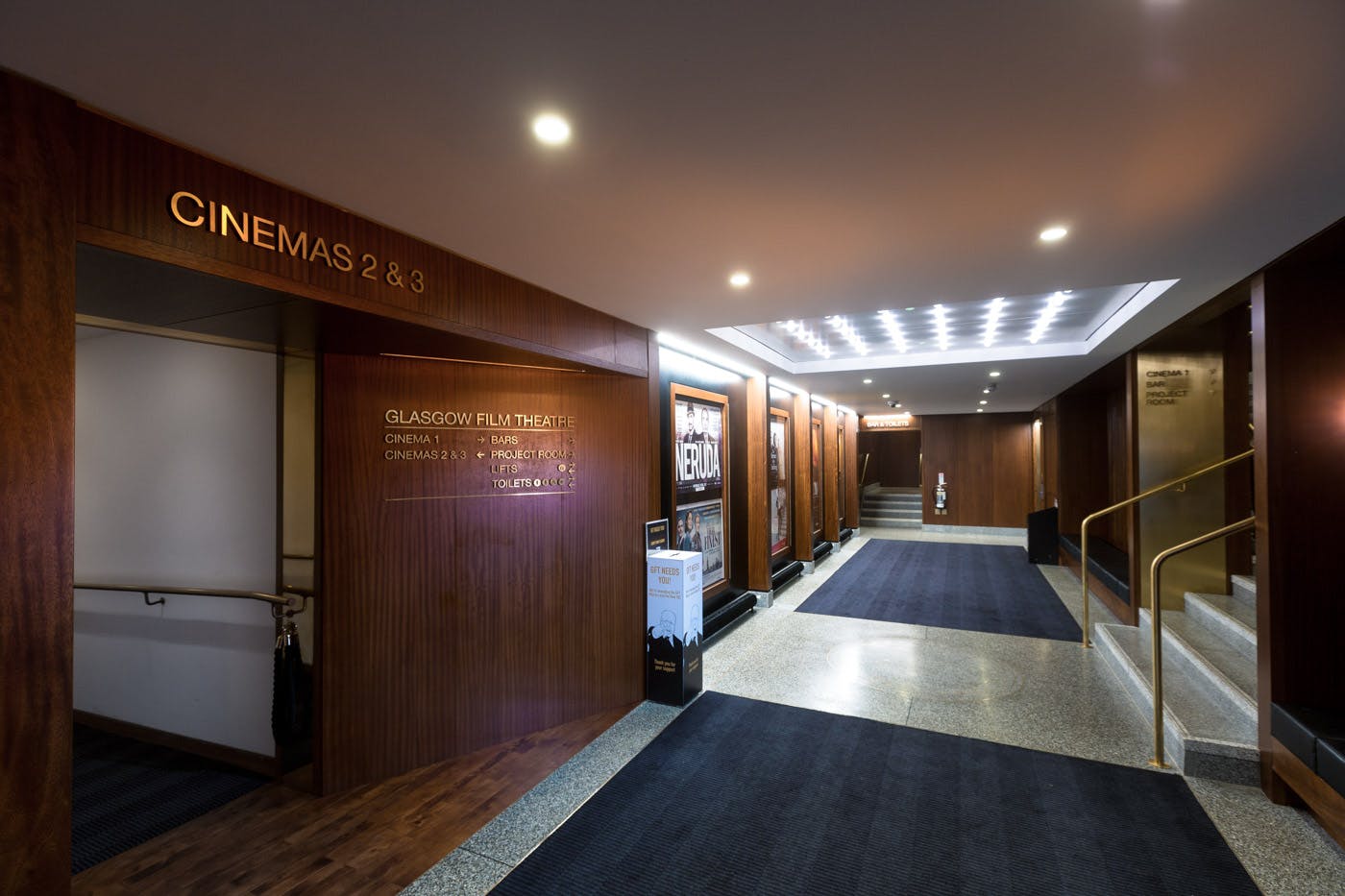
How many people are involved in that process?
Sean: Mainly myself and Allison. We include the marketing team because they do all the marketing, so it's good for them to see it but also they are very cine-literate, very film engaged and we get really great input. Even our finance team are very engaged with film and have some great suggestions. Oftentimes the whole team can watch them.
I saw a film recently in Leicester about a young lady with Asperger's and I wasn't entirely sure about it. I knew it was a good film but wasn't entirely sure about the way it approached that condition, so I got a screening of it and got our engagement co-ordinator to watch the film because she deals with a lot of people who are afflicted, so it's good to get that rounded view on things. We're planning a way of screening that in a conscious way.
So, a minimum of myself and Allison but we do include the wider team.
Margaret: That's what's nice about it. Programmers listen to what you think. If you have an idea they'll hear you out and it'll be discussed with the wider GFT team. Everyone is interested and everyone cares about what we show and that's what’s really nice about those conversations. Everyone who works here is passionate about film and the GFT in general.
Gavin: The audience also chip in sometimes with suggestions.
Margaret: That happens quite a lot on social media.
What's the criteria for deciding what's shown and what isn't?
Margaret: We know our audience, what they like and what they'd come along to watch, as well as what doesn't work. This is a great film and people will want to come along to see it.
Gavin: There is risk. A lot of us have worked here on another cinema for a number of years, so you kind of know if something has appeal. You can gauge it against what has come before.
It doesn't always work for a number of reasons. The weather, the competition etc. We brought back 'The Handmaiden' as we thought people may not have caught it first time around and it did really well again. It just depends. It's a combination of instinct and intuition.
Margaret: With regards to bringing films back – it may have been on in January and people have been talking to their pals afterwards, and so when it comes back they've heard about it and go see it. That taps into an audience we don't get to speak to all of the time.
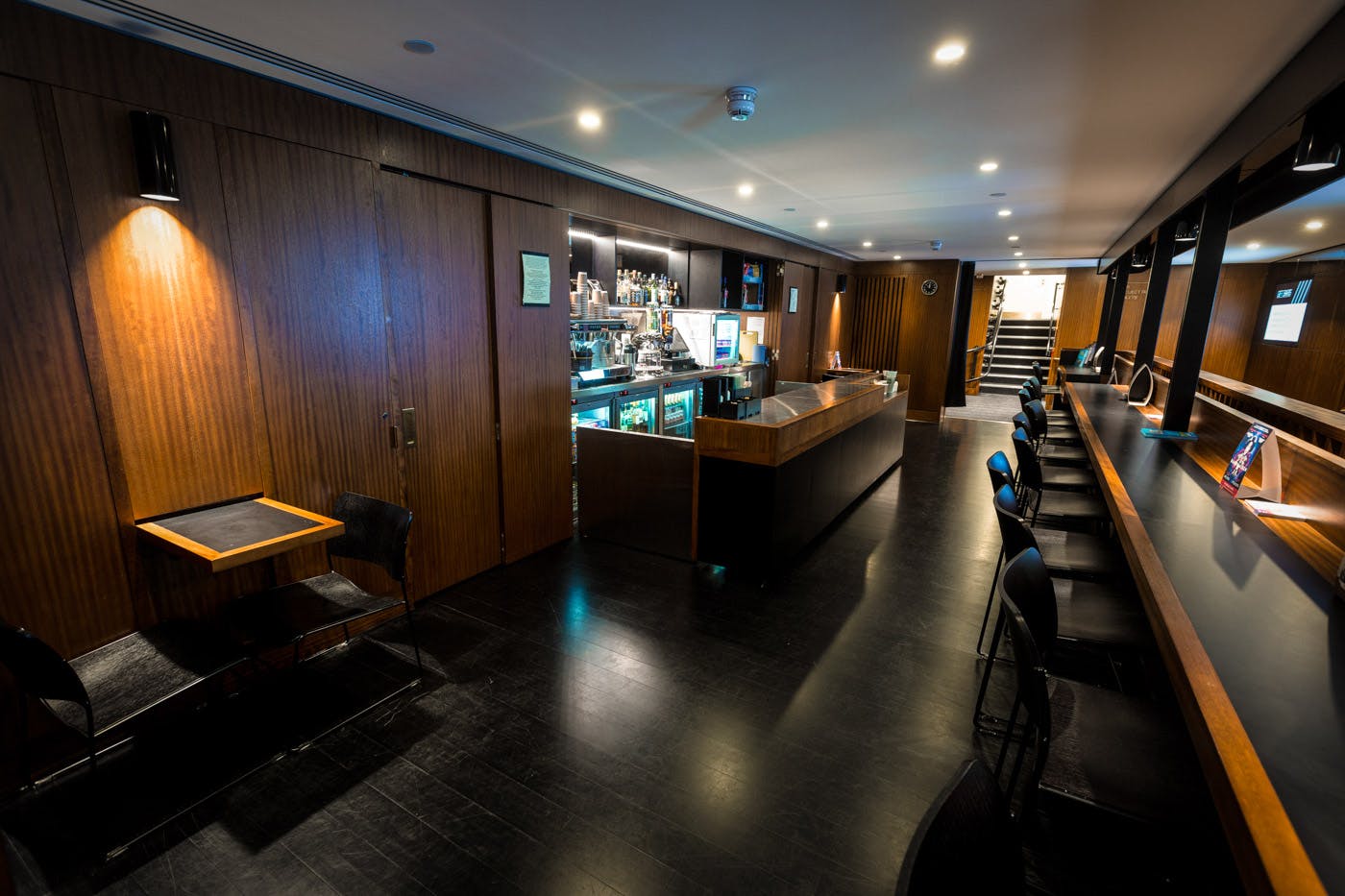
Do some of your more avid fans act as brand ambassadors and do a little of your job for you in spreading the word?
Margaret: To a degree yes. I think people trust other people more than most things. If someone they know and respect recommends it, then they're more likely to seek it out, than if the cinema itself promotes it.
Your existing audience seem to be pretty loyal, but how do you tap into a new audience – one that would normally go to Cineworld or Odeon?
Gavin: It's an ongoing discussion. Pricing – trying to be cheaper than Cineworld or Odeon, making sure the bars are nice; offering a comfortable experience and high quality of service.
Margaret: It's also word of mouth. We rely on someone who's been here telling people they know that they enjoyed GFT. It's a powerful tool. We're not pushing posters in people's faces to say they have to come here – it's an organic thing.
Gavin: The film festival helps a lot. More people attend who normally wouldn't and we're trying to communicate that's what GFT is like all the time.
Margaret: A lot of people come to the festival that don't come year round and that's interesting. The festival is amazing and we have a lot of films but we have a limited screening schedule and it's very hard for programming to fit that in.
With the Glasgow Film Festival now regarded as one of the top film festivals in the UK; are there plans to further expand, or do you think there's a glass ceiling?
Gavin: Difficult to know. It depends on a few things: funding, screen space (we use CCA [two screens] and Cineworld too [one screen]). The aim is to increase it and make it bigger and better. I think we will be able to do it but how we do that is still up in the air. We have been growing and people recognise the programme is really strong, and they're going to see some great stuff at the festival. It's up to us how we expand it, but there are a few variables there.
How does the selection process differ for the festival, if at all?
Sean: For the Festival, it's even bigger. There's a co-director, there's a programme co-ordinator and there are various other roles as well that plug in. It's a beast!
Gavin: Also, the festival takes submissions. It's not just distributors and sales agents. There are also first and second time filmmakers who give you their film and say "Can we have it in the festival?" and we have to make a call. Luckily I don't have to make that call! It's normally Sean and Allison. It's quite a difficult process. A film comes in and if you don't like it and someone else does – how do you gauge that? Especially with unknown quantities: directors you maybe haven't heard of or subjects you don't know much about. It's quite a tricky process.
Sean: Or film-making that comes from a different country that has a completely different rhetoric about the way it tells the story and it may not work for one person, but it might be really great in that context. For the festival we have a system we set up where it gets watched a few times by a team of submission viewers, then it goes on to the next level where a member of the core team watches it, then a further level. It has to be seen by a good few people before it's selected for the festival.
Do you have plans to diversify? For example, more special events?
Gavin: I think we'll keep doing them. They're really fun to work on. Lost Boys was a massive success. 'The Thing' at Snow Factor was a huge success as well. As long as there are good films to show and fun places to show them, we'll keep doing it!
How difficult are those events to put on?
Gavin: There are always complications. Usually we hire someone to look after the special events because it is a big job. For example, we were planning to use flares for the Snow Factor event but it was cancelled on the day due to a building insurance issue that neither us nor Snow Factor were aware of. They're tough to put on but worth it.
Margaret: The photos are great too. There is a limited capacity for taking photos at the cinema but at special events people take great photos and share them on social media. Con Air last year had a load of photos of people in jumpsuits on a prison bus and they were brilliant! You can tell people are really enjoying it!
Glasgow Film and the GFT in general has evolved from one screen to multi-screen over the years, and now includes lectures, discussions, events, workshops and festivals as part of its offering. What's next?
Gavin: That's a broad question! The bread and butter of our organisation to encourage people to watch films, enjoy them and discuss them - helping people choose what they like. All the other stuff, such as the Q and As really suit us. We like to think we're a welcoming place that people can come to and engage in film – more than you can in a multiplex. In terms of what's next, that depends on the industry – maybe Virtual Reality (VR). We already included it in the Short Film Festival and it could become a bigger thing. It depends on technology and it depends on what film-makers want to do. If they keep producing stuff on film – we’ll keep showing it. If it dies then we'll see what happens. As long as people are championing that stuff and that experience we'll continue to offer it.
Margaret: I think the key is us not being the same as multiplex cinemas. We recently announced we've been given funding to begin a dementia friendly programme and hopefully our access programme will continue to grow. We hope it will be somewhere people will come and feel safe, and get to enjoy the same things as everyone else.
Gavin: Like I said it depends on the industry. A good example is Dunkirk. He (Christopher Nolan) filmed it in 70mm and we have it for a couple of days in 70mm. You're not going to get that anywhere else in Glasgow. There's only one or two other places in Scotland that can offer that experience. It's rare.
Not in 3D then?!
Gavin: No, but we can do 3D! We have a Terminator 2 screening in 3D.
Is it a case of continuing to seek out opportunities and expose people to new things/new aspects of film?
Margaret: Yes. We also want to grow our Youth Festival over the next few years. It is programmed by youth programmers, which is different to a lot of Youth Film Festivals. That's something that's cool, and people should be getting involved in. It will hopefully become bigger and become a thing in itself.
Many thanks to Margaret, Gavin and Sean for being so generous with their time and for providing such an interesting behind the scenes insight.
For the latest on Glasgow Film, you can follow them on Facebook, Twitter, YouTube and GF website.
